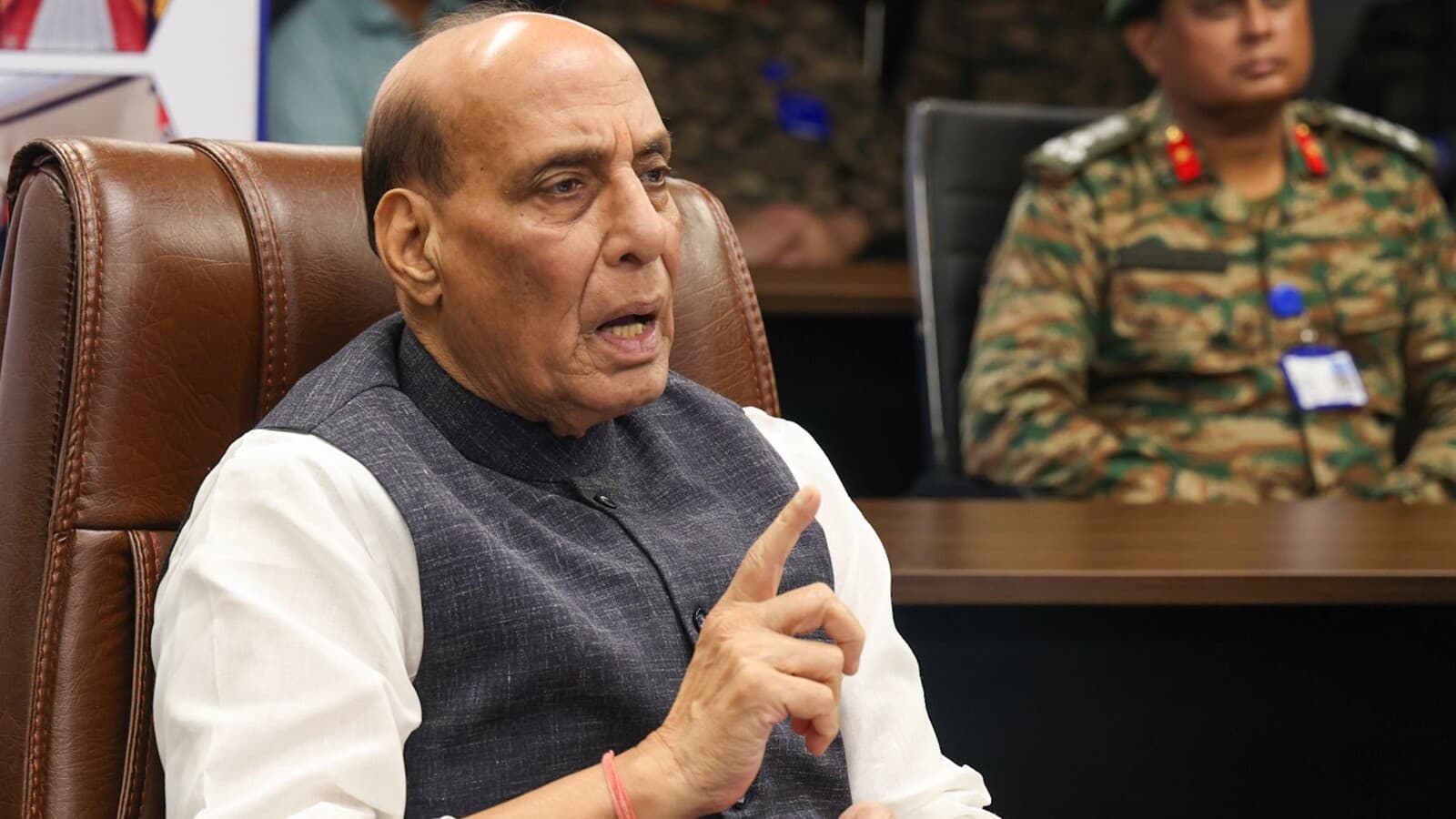
'Consensus on patrolling...grazing': What Rajnath said on India-China border agreement
What's the story
India and China agreed this week to disengage troops along the Line of Actual Control (LAC) in Ladakh, bringing an end to the 54-month-long military standoff that started with Chinese incursions in April 2020.
Defense Minister Rajnath Singh on Thursday announced that a "broad consensus" was reached to "restore ground situation" based on "equal and mutual security."
The agreement comes after extensive diplomatic and military talks between the two nations.
Resolution path
Agreement aims to resolve issues, normalize ties
"India and China have been involved in talks both at military and diplomatic levels to resolve differences in certain areas along the LAC. Pursuant to the talks, a broad consensus has been achieved to restore the ground situation based on the principle of equal and mutual security," Singh said.
"The consensus achieved includes patrolling and grazing (cattle) in traditional areas. This is the power of engaging in continuous dialogue," he said at the Chanakya Defence Dialogue 2024.
Diplomatic efforts
Extensive talks lead to agreement on patrolling arrangements
The disengagement process included 17 rounds of diplomatic talks and 21 rounds of corps commander-level discussions.
On Wednesday, Prime Minister Narendra Modi and Chinese President Xi Jinping agreed to boost communication and cooperation between their countries and resolve conflicts to help improve strained ties.
"Maintaining peace and tranquility over the border should remain our priority, and mutual trust, mutual respect and mutual sensitivity should remain the basis of our relationship," PM Modi said.
Unresolved issues
Questions remain about de-escalation and buffer zones
PM Modi also welcomed the "consensus" reached between the two countries, while Xi said it is important for India and China to have more communication and cooperation and properly handle "differences and disagreements."
The leaders met on the sidelines of the BRICS summit in Kazan, Russia.
Relations between the two nations have been strained since a clash between their troops in the Galwan Valley left 20 Indian and four Chinese soldiers dead in 2020.